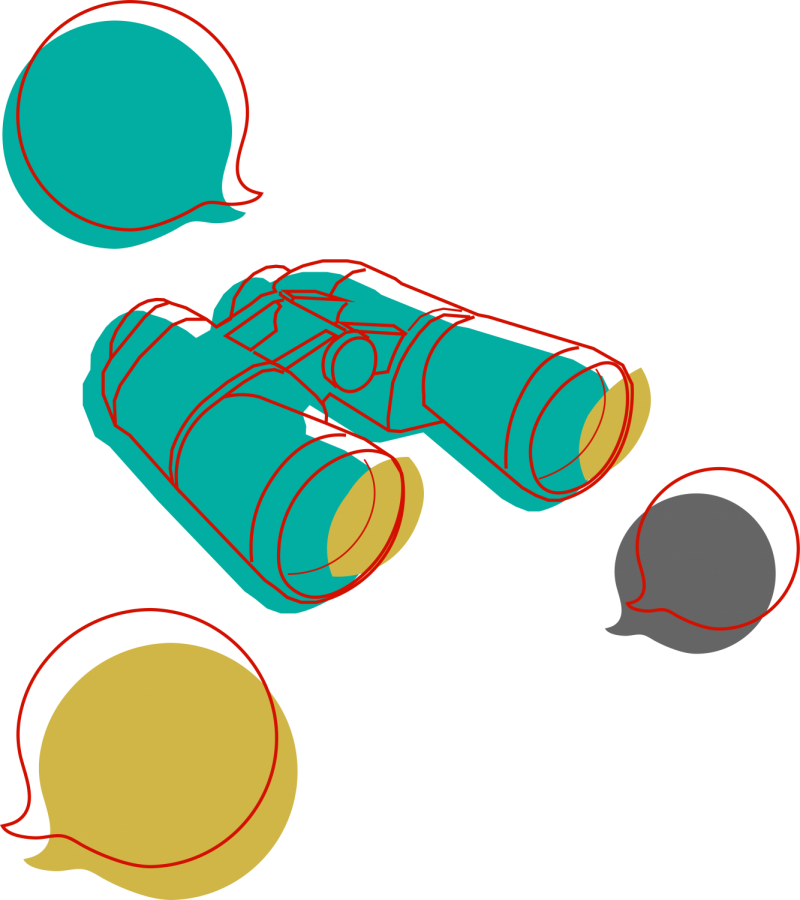Major Exploration: 200 Undergraduate Programs, One U
(Graphic by Cyan Larson | The Daily Utah Chronicle)
August 23, 2021
For the academic year 2020-2021 at the University of Utah, the second most popular undergraduate major, just under computer science, was undeclared.
The Academic Advising Center’s website has a page on “How to Choose a Major” to help students who are undecided, tentatively decided, decided but uncommitted or decided but not admitted.
The AAC also offers different methods of helping undeclared students and the right major for them. One of these — a major exploration appointment — can be scheduled on the AAC’s website, with options for meetings ranging from “Degree Audit Explanation” to “Classes and Registration.”
Another method is a class called UGS1050: Major Exploration. “I recommend UGS1050 … for any student who would like to take some dedicated time to explore their major options, even if they’re already declared in a major,” Director of the Major Exploration Program Lisa Hutton said in an email interview. “The U has over 200 undergraduate programs including minors and certificates, and spending the time to make an intentional decision or to verify your decision is valuable.”
“The U has over 200 undergraduate programs including minors and certificates, and spending the time to make an intentional decision or to verify your decision is valuable.”
After graduating from high school early, then studying abroad before her undergraduate studies, Sage Blackburn, a peer advisor for the AAC, found it difficult to know which academic direction to take. “In November, I found myself sitting in the Academic Advising Center for my first-year mandatory advising appointment,” Blackburn said in an email interview. “It was there, nervous and probably a little dehydrated, I told my advisor, Jon, I had no idea what I wanted to do.”
Blackburn was advised to take UGS1050 and apply to be an AAC Peer Advisor, a role intended to make academic advising more accessible to U students. “Becoming an advisor was one of the leading resources that helped my major exploration process,” she said.
Blackburn, originally from Southern Utah, said she considered the parks, recreation and tourism major because of her hometown’s heavy reliance on tourism. “I met with a major advisor and decided to work in my hometown for the spring and summer,” Blackburn said. “I spoke to people who held careers within the Bureau of Land Management.”
Hutton said that outside of class, she suggests finding one campus activity to get involved in. “Involvement with clubs, internships, volunteering, resource centers, or other things can help you learn what you like and what you don’t,” Hutton said. “They’ll also introduce you to people with similar interests whose experiences could help with your exploration journey.”
After talking to more specialists in the field and using the AAC as a resource, Blackburn decided she wanted to attend law school after her undergraduate education. “Finally, after years of college major insecurity, I had found a direction that felt exciting to go in,” she said.
Recent U graduate Aubry Lines originally started her college journey at SLCC as a first-generation student. “You go on to college, not really knowing what the heck you’re doing, and I was doing pre-pharmacy … and I worked on that for like three years,” Lines said.
However, when she was almost done, she met her current partner, who showed her the Microscopy lab. This sparked her interest, and she started to think she could make it in a different field. Despite feeling like physics might only be a field for rich white men, Lines decided to make the change and graduated from SLCC with two associate’s degrees before transferring to the U, where she recently graduated with a B.S. in physics.
After eight years of undergrad, Lines said that a lot of things in college will not matter after graduation. “The biggest thing I learned is that it’s not as cut and dry as it seems because, in industry, they just want to know that you can learn,” she said. “Screw it, just do what you want, who cares what people think as long as you’re happy.” Hutton also said it is important to remember that a major does not equal a career.
In addition to Blackburn’s experience as an AAC Peer Advisor, the most helpful factor in choosing her major was the research she did outside of campus. “I met with those working in the fields I was considering, and it made the decision-making process more fun rather than stressful,” she said.
Blackburn wants students to know there is no pressure to choose a major quickly. “As a peer advisor, I want students to know that it’s okay to take time on deciding, you have the time,” she said.










